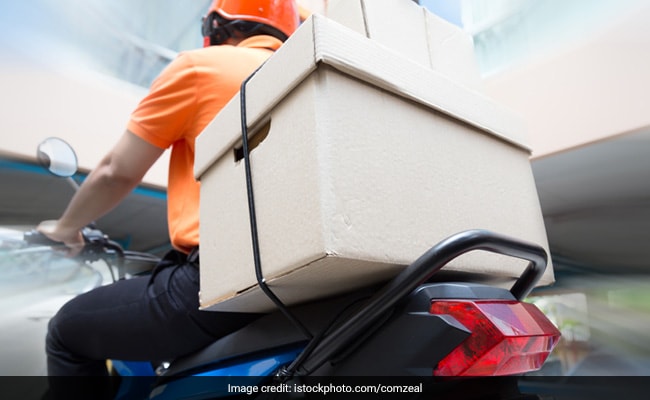As the world grapples with the pandemic of epic proportions, the food we consume and the environment in which we eat needs to be of the highest quality in terms of hygiene. As living beings, we rely on food and water for basic survival. Food safety is inextricably linked to good health. So, what happens when the consumption of food, a necessity, is considered risky and deemed unsafe? This is the exact scenario that the world is facing today. The COVID-19 pandemic has brought the aspect of food safety to the forefront. Owing to the highly transmissible nature of the virus, hygiene standards and safety measures have made their way to the top of the priority list.
As India Inc. slowly but surely looks to reset and have staff recommencing work from office premises, it is crucial for organisations to dedicate extra efforts to ensure the safety of their work premises including cafeterias. Any minute contamination can put the entire staff at risk. This, therefore, calls for the best hygiene and safety measures to be put in place. For brands in the food and beverage industry, as well as organisations, ensuring that top-notch safety measures are followed is necessary. So, what are companies doing to make sure that the food consumed by their employees is safe and hygienic?
1. Staff Training
Educating the staff and keeping track of their hygiene and safety is the first step to food safety. Hence, the primary focus has been on providing ample protection and training for the staff who handle the food in terms of cooking, packaging, and delivery. Brands dealing with food and beverages are now offering WHO-prescribed training to the staff handling the food and sufficient safety gear such as Personal Protective Equipment (PPE).
(Also Read: Covid-19: 5 Ways The Epidemic Will Change The Way We Eat)

Delivery partners and kitchen staff are continually being trained in best practices of respiratory hygiene, proper method & frequency of washing hands as well as identification of virus-associated symptoms. In addition to the stringent measures taken to educate and protect staff, those who work in kitchen operations are also being strictly advised to adhere to social distancing regulations while preparing the food.
2. Tech-driven Solutions
Manually, it is almost impossible to keep track of every element of the cafeteria right from the kitchen to the counters and the cafeteria seating space. This is where technology comes into the picture. Supervising kitchen and cafeteria activities easily calls for digitisation. Companies are digitising almost all aspects of the food and beverage department to keep a 360-degree view of the entire process.
Food vendors and restaurants need to fulfil certain parameters in order to be qualified to serve food to employees. Some of the parameters are kitchen hygiene protocols such as deep cleaning of utensils, clean water used for cooking, counter hygiene, and personal hygiene of the staff, among others. These parameters which were once manually filled in by a supervisor or an agent have now been converted into a digital checklist.
(Also Read: World Food Safety Day: WHO Shares 5 Keys To Safer Food)

Since the health and hygiene of those handling the food are crucial, brands are adopting more tech-based safety measures such as live body temperature trackers on their mobile apps. This is to provide the consumers with a real-time update of the body temperature of staff handling their meals right from the chef to the delivery executive. Additionally, companies are introducing a 'desk ordering' feature to minimise human contact as social distancing becomes the norm.
3. Modified Menus for Immunity
With major reliance on one's immunity to protect themselves from the virus and recover swiftly if infected, boosting immunity has taken precedence. Apart from such stringent measures taken to ensure there is no contamination in any way, brands are also altering the menu choices. There has been an increase in immunity-boosting foods/ingredients such as garlic, turmeric, ginger, and lime making their way onto the menus offered by food vendors.
(Also Read: 8 Immunity Boosting Foods to Keep You Healthy)

While the pandemic might be a temporary crisis, food safety is an aspect that needs to be prioritiaed permanently. Adherence to hygiene and safety measures strictly will eliminate any risk of contamination, allowing us to enjoy our meal without any concerns.
About Author: Mr. Sandipan Mitra is Co-founder, and CEO of HungerBox.
Disclaimer: The opinions expressed within this article are the personal opinions of the author. NDTV is not responsible for the accuracy, completeness, suitability, or validity of any information on this article. All information is provided on an as-is basis. The information, facts or opinions appearing in the article do not reflect the views of NDTV and NDTV does not assume any responsibility or liability for the same.
"eat" - Google News
June 06, 2020 at 09:31PM
https://ift.tt/37dglJV
To Eat Or Not To Eat: The Importance Of Food Safety In Post Covid-19 World - NDTV Food
"eat" - Google News
https://ift.tt/33WjFpI
https://ift.tt/2VWmZ3q
Bagikan Berita Ini














0 Response to "To Eat Or Not To Eat: The Importance Of Food Safety In Post Covid-19 World - NDTV Food"
Post a Comment